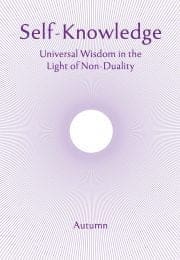Become What You Are
There was once a porter who had to carry and struggle under many heavy loads and was inclined, at the worst moments, to cry out and pray to God and say, ‘If only you would release me from work, my Lord, I would be content with two pieces of bread a day.’
One day, he saw two people fighting and, brave man that he was, he went up to try and intervene and be a peace-maker. But what happened was that a blow with a blunt instrument aimed by one of the assailants at the other, missed its mark and fell on the head of the porter, and when the police came to round up the parties in the affray, they took him to be one of them and packed him off with the others to prison. Here he stayed for several days, receiving two pieces of bread a day without having to do any work for it, just in the manner, or rather not quite in the manner, he had so earnestly wished.
One can interpret the moral of this story either in a positive or a negative sense. Interpreting it in a positive sense, one might say the moral was that wishing and hoping for something you really want is part of the means of getting it—but you do have to be sure it’s something you really want. The negative interpretation would focus on the unanticipated disappointment that overtakes most human endeavours.
Humankind may be divided into two classes: the enlightened and the unenlightened. The enlightened know how to live happily and to cause happiness in others. They are like shining jewels. But the unenlightened are not free. They become slaves to desire for pleasure from sense-objects. Engrossed in pursuing externals, whether wealth, power, fame, learning or physical pleasures, they are unable to take note of their own true nature, which can only be found through a gaze directed not outwards but within. They are not happy, and generally find life a burden.
Even if we study the scriptures, our study is a useless burden unless it gives us enlightenment or, at least, inspires us to take some firm and meaningful steps towards virtue. The same applies to mulling over and discussing the scriptures, though this is a more creative pursuit than just reading them. We come to life in a human body, but life tends to be a burden if we do not rise above the sense of identity with the mortal body. But how is this disidentification to be achieved? It is through the conscious habit of placing before the mind short texts which embody the highest truth, as discovered by the sages of old, and letting the mind dwell on them. This is called the practice of affirmation, and much of this article will dwell on the significance of this form of self-training.
Subscribe or enrol for free guest access to read all of this article and Self-Knowledge online.
Already subscribed or enrolled? Log in:


